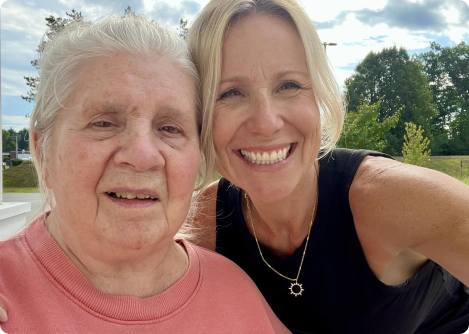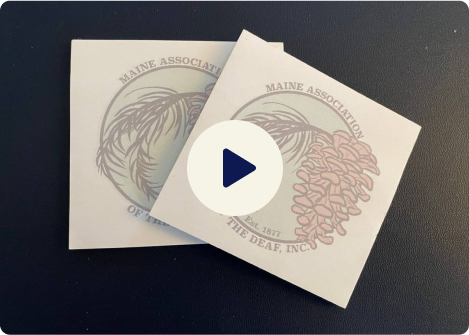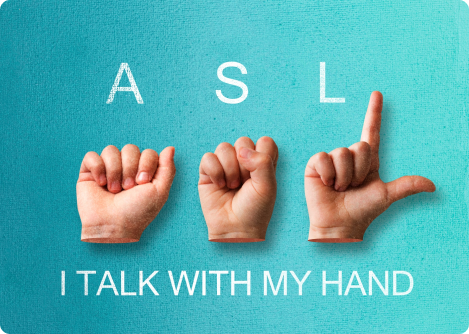Interpreting for the Community
Enhancing Communication Access for All
MeAD is committed to ensuring that the Deaf community has access to skilled and reliable sign language interpreters. Discover how to work effectively with interpreters and find the right services to meet your needs.
Finding Sign Language Interpreters
You can search the RID Interpreter Registry or do a Maine Licensee Search to locate qualified interpreters.
Working with Interpreters
Effective interpreting begins with thorough preparation. This includes pre-conferencing with the interpreter to discuss the assignment details and expectations. After the event, debriefing helps ensure clarity, address any challenges, and improve future interpreting sessions.
Understanding proper etiquette when working with interpreters is essential. This section covers best practices, including how to communicate through an interpreter, positioning, and respecting the interpreter’s role as a facilitator of communication.
Ensuring high-quality interpretation requires ongoing quality assurance checks. Learn how to assess interpreter performance, gather feedback, and make adjustments as needed to maintain the highest standards of service.
After an interpreting assignment, it’s important to follow up with Deaf clients to gauge their satisfaction. This feedback loop helps improve service quality and ensures that the communication needs of Deaf individuals are fully met.
Regular follow-ups with interpreter agencies can help maintain a strong partnership and ensure that the interpreters provided meet your needs. Discuss performance, address any concerns, and plan for future assignments.
Familiarize yourself with Maine’s interpreter license laws to ensure compliance. This section provides an overview of the legal requirements for interpreters practicing in Maine, including licensure, renewals, and continuing education mandates.
Interpreters adhere to the NAD-RID Code of Professional Conduct, which outlines ethical standards and practices. This section explains the code’s key principles and how they guide interpreters in maintaining professionalism and integrity in their work.
Types of Interpreting
Different Types of Maine American Sign Language Interpreters
In Maine, there are various types of American Sign Language (ASL) interpreters, each with different qualifications and specializations. Understanding these distinctions helps in selecting the appropriate interpreter for your needs.
Licensed vs. Conditional
vs. Certified
In Maine, interpreters may hold different types of credentials: Licensed, Conditional, or Certified. Licensed interpreters meet state-specific requirements; Conditional interpreters are working under specific conditions or temporary status; Certified interpreters have passed national certification exams, demonstrating a high level of proficiency and professionalism.


Deaf Interpreters vs. Hearing Interpreters
Deaf interpreters, who are Deaf themselves, offer unique perspectives and cultural insights that enhance communication for Deaf individuals. Hearing interpreters, on the other hand, provide services based on their training and experience. Both play crucial roles in effective interpretation, depending on the context and needs of the individuals involved.
Legal Interpreters
Legal interpreters specialize in providing interpretation services in legal settings, such as courtrooms, legal consultations, and depositions. They are trained and certified to handle legal terminology and ensure accurate communication between Deaf individuals and legal professionals.


Video Remote Interpreting
Video Remote Interpreting (VRI) offers on-demand interpreting services through video technology, enabling interpreters to assist remotely. This option is useful for real-time communication when an in-person interpreter is not available.
Video Relay Services
Video Relay Services (VRS) allow Deaf individuals to make phone calls using a video interpreter. This service bridges the communication gap between Deaf and hearing individuals over the telephone, facilitating conversations through a video relay interpreter.




